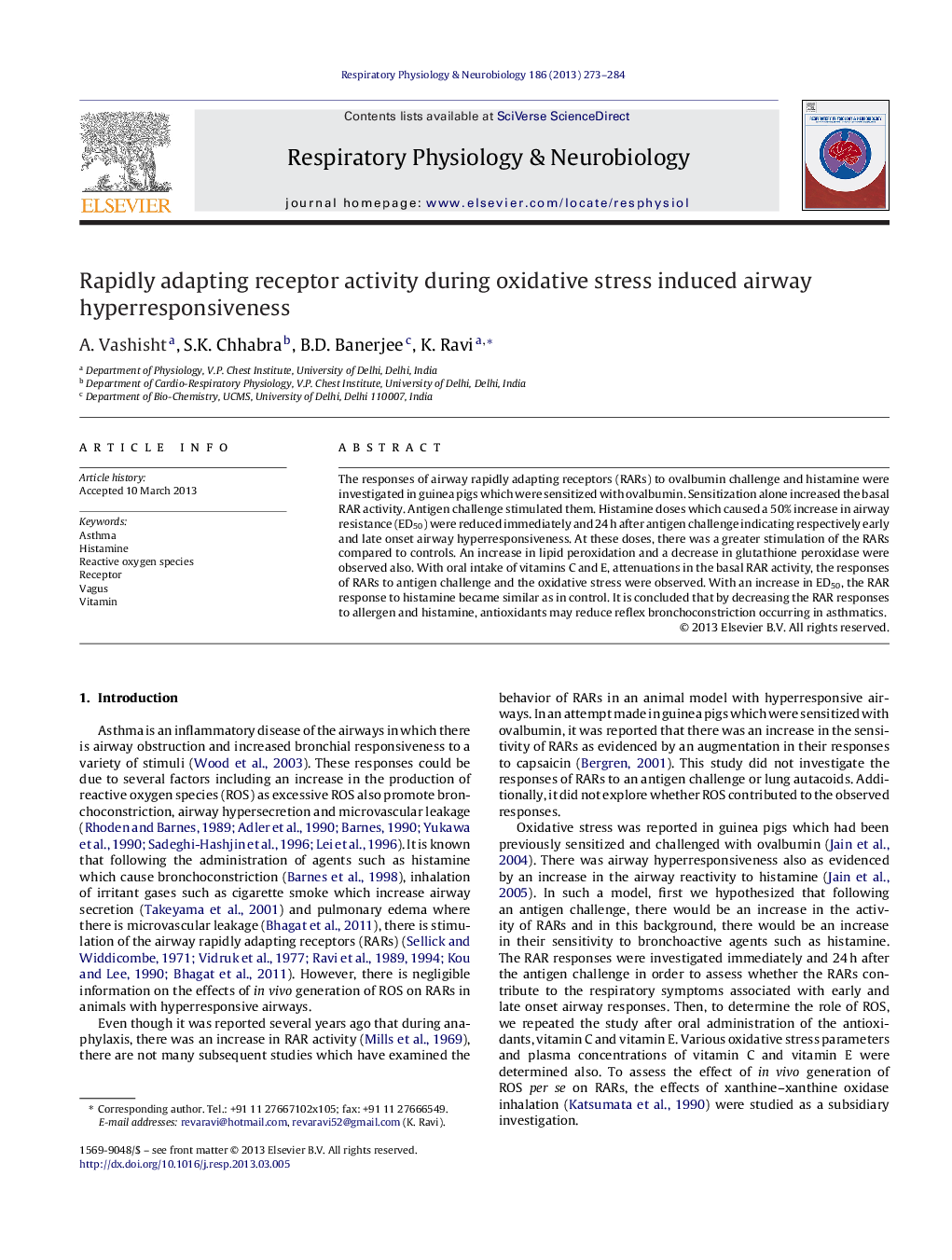| Article ID | Journal | Published Year | Pages | File Type |
|---|---|---|---|---|
| 2847259 | Respiratory Physiology & Neurobiology | 2013 | 12 Pages |
•Basal activity of RARs is increased in animals sensitized with an antigen.•A subsequent antigen challenge stimulates the RARs.•In this state, there is an increase in the sensitivity of RARs to histamine.•Antioxidant intake reduces the increase in airway resistance associated with antigen challenge and histamine inhalation.•With antioxidant intake, a decrease in the RAR activity to these stimuli is also observed.
The responses of airway rapidly adapting receptors (RARs) to ovalbumin challenge and histamine were investigated in guinea pigs which were sensitized with ovalbumin. Sensitization alone increased the basal RAR activity. Antigen challenge stimulated them. Histamine doses which caused a 50% increase in airway resistance (ED50) were reduced immediately and 24 h after antigen challenge indicating respectively early and late onset airway hyperresponsiveness. At these doses, there was a greater stimulation of the RARs compared to controls. An increase in lipid peroxidation and a decrease in glutathione peroxidase were observed also. With oral intake of vitamins C and E, attenuations in the basal RAR activity, the responses of RARs to antigen challenge and the oxidative stress were observed. With an increase in ED50, the RAR response to histamine became similar as in control. It is concluded that by decreasing the RAR responses to allergen and histamine, antioxidants may reduce reflex bronchoconstriction occurring in asthmatics.
